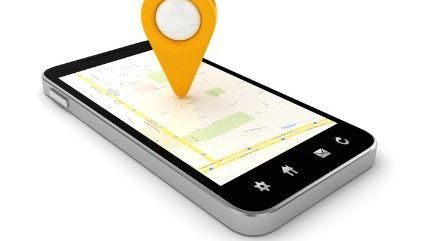Cellphone Location Tracking: Heading to the Supreme Court?
Circuit Court panel demands police seek a warrant.


We may have a federal court split coming, ladies and gentlemen. A 4th Circuit Court of Appeals panel has just ruled that police need a warrant to get cellphone location data from third parties while investigating crimes. This ruling contradicts a May decision from the 11th Circuit that determined that such records fall under "third-party" collection rules and that citizens have no expectation of privacy. Here's the Associated Press on yesterday's decision:
The American Civil Liberties Union said the decision by a three-judge panel of the 4th U.S. Circuit Court of Appeals conflicts with two other federal appeals court rulings and increases the possibility that the U.S. Supreme Court will take up the issue. Attorneys last week asked the Supreme Court to review an appeals court ruling in a Florida case that said search warrants are not required.
The case in the Richmond-based appeals court involved two men who were convicted of a series of armed robberies in the Baltimore area. The court said authorities who obtained cellphone tower records tracking the suspects' movements without a warrant violated the U.S. Constitution's prohibition against unreasonable searches.
"Today's opinion is a full-throated defense of Fourth Amendment privacy rights in the digital age," said Nathan Freed Wessler, an attorney with the ACLU Speech, Privacy and Technology Project.
There's an issue, though, before the case heads up to the Supreme Court. This was a panel ruling, not the full court. In the 11th Circuit, a three-judge panel made the same decision as the 4th Circuit panel here—that cell phone location records are private and cell users have a reasonable expectation they'd be kept that way. But the full 11th Circuit Court of Appeals overruled the panel's decision, leaving the status quo intact. The same could happen here. The dissenting judge in the panel decision invoked the familiar "third-party" doctrine and said phone users should have no expectation of privacy of data being held outside companies.
If the full court does agree with the panel, though, then we'll have two federal courts in disagreement over whether cell location data is private information requiring a search warrant to access. If that happens, the Supreme Court would almost certainly have to take up the matter.
Editor's Note: As of February 29, 2024, commenting privileges on reason.com posts are limited to Reason Plus subscribers. Past commenters are grandfathered in for a temporary period. Subscribe here to preserve your ability to comment. Your Reason Plus subscription also gives you an ad-free version of reason.com, along with full access to the digital edition and archives of Reason magazine. We request that comments be civil and on-topic. We do not moderate or assume any responsibility for comments, which are owned by the readers who post them. Comments do not represent the views of reason.com or Reason Foundation. We reserve the right to delete any comment and ban commenters for any reason at any time. Comments may only be edited within 5 minutes of posting. Report abuses.
Please to post comments


Mental note: stock up on Scotch, because if SCOTUS takes this, it will be an epically bad decision consisting of a concentrated effort to dig up the rotting corpse of the 4A, pulverize it, soak it in gasoline, throw it on a pile of tires, and toss a match.
Tell us how you really feel.
Why would SCOTUS take it? It's going to be reversed en banc.
Unlikely. En banc decisions are extremely rare. The 11th Circuit one was, well, that's the 11th Circuit; no one understands them or has any idea what they're going to do on any given day (and they're far and away the most reversed circuit). But even the decision invalidating the Obamacare tax credit (which was ultimately, if inexplicably, overturned by the Supreme Court) wasn't an en banc ruling. I'll be very surprised if this one is.
Well, as long as they don't woodchipperize it.
Go away, Shackford. We're trying to have a discussion here.
...we'll have two federal courts in disagreement over whether cell location data is private information requiring a search warrant to access.
Two courts enter. One court leaves.
The circuit court judge probably has some schlub put his trash out to the curb. Maybe he wouldn't mind if some concerned citizens rummage through it? Maybe Justice Roberts wouldn't mind if I take an unwarranted peak into his bank account records, that data is with a third party so it's not like he wants it to be private. Maybe Loretta Lynch wouldn't mind if I examine her medical records. That data is with a third party, so she obviously has given up her expectation of privacy. That's how it works right?
Yeah, apparently.
The third party collection thing has to be one of the most dishonest arguments out there in the courts. And that is saying a lot. No one can honestly believe in this day and age that your data that is stored by third parties is not part of your personal effects and/or papers.
USPS "stores" a lot of data. Just sayin'.
This is one of several reasons why I am the only person in the world who doesn't carry a phone all the time.
My father doesn't even have a cell phone. The NSA are probably terrified of him, if they even know he exists.
I don't have a cell phone, either.
It seems like the phone/digital equivalent of a "tragic canoe accident" would be too easy to gin up for me to really care.
I predict that it will go 5-4 in favor of rescinding the 4th amendment, with some idiot blathering on about how while the spirit of the practice violates the 4th, the new police professionalism will protect citizens from abuse.